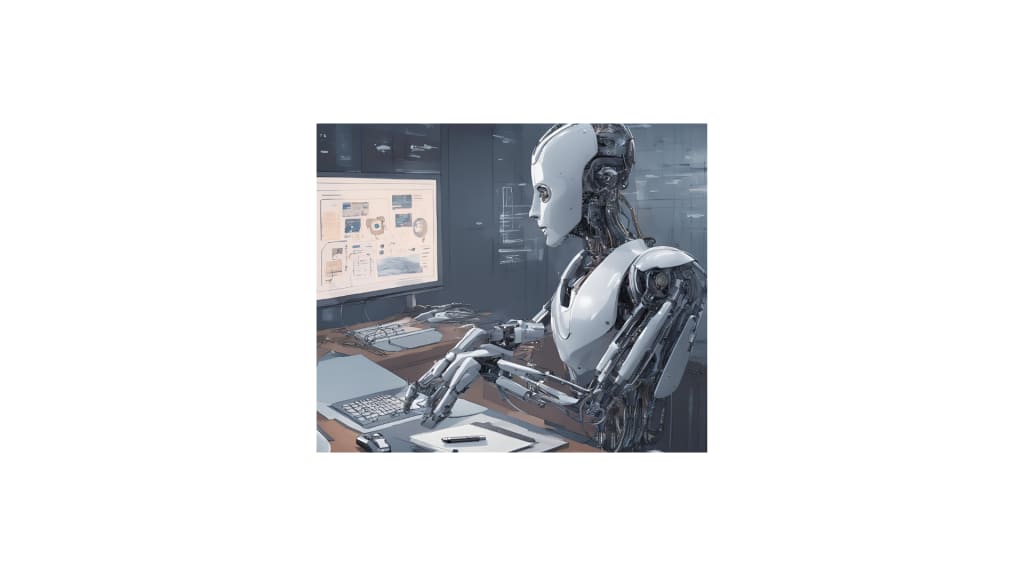Content warning
This story may contain sensitive material or discuss topics that some readers may find distressing. Reader discretion is advised. The views and opinions expressed in this story are those of the author and do not necessarily reflect the official policy or position of Vocal.
The Rise of Artificial Intelligence in Everyday Life
Explore the benefits, challenges, and future of AI integration."

Artificial Intelligence (AI) has rapidly transitioned from the realm of science fiction to an integral part of our daily lives. Its applications span across various sectors, significantly impacting how we work, communicate, and entertain ourselves. As AI continues to evolve, it is essential to understand its implications, benefits, and challenges in our everyday existence.
The Ubiquity of AI in Daily Activities
1. Personal Assistants and Smart Homes
One of the most visible implementations of AI is through personal assistants like Amazon's Alexa, Google Assistant, and Apple's Siri. These AI-powered assistants have become household staples, helping users manage their schedules, control smart home devices, and provide information with simple voice commands.
Smart homes, powered by AI, offer unprecedented convenience and efficiency. AI-driven devices like smart thermostats, lighting systems, and security cameras learn users' habits and preferences, optimizing energy usage and enhancing home security.
2. AI in Healthcare
The healthcare sector has seen significant advancements due to AI. From diagnostic tools to personalized treatment plans, AI's capabilities are revolutionizing patient care. For instance, AI algorithms can analyze medical images with high accuracy, assisting doctors in early detection of diseases such as cancer.
Moreover, AI-powered health apps and wearable devices monitor vital signs and provide real-time health data, empowering individuals to take proactive measures in managing their health.
3. Autonomous Vehicles
Self-driving cars, once a futuristic concept, are now becoming a reality thanks to AI. Companies like Tesla, Waymo, and Uber are at the forefront of developing autonomous vehicles that promise to enhance road safety and reduce traffic congestion.
AI systems in these vehicles use sensors, cameras, and advanced algorithms to navigate complex traffic scenarios, making real-time decisions that mimic human driving behavior. Although fully autonomous cars are not yet ubiquitous, the advancements in this field indicate a promising future.
4. AI in Entertainment and Media
AI's influence on entertainment and media is profound. Streaming services like Netflix and Spotify use AI algorithms to recommend content based on users' preferences and viewing history. This personalized approach keeps users engaged and enhances their overall experience.
In the realm of content creation, AI-generated music, art, and even news articles are becoming more common. These AI tools can assist creators by generating ideas, composing music, and even writing scripts, expanding the boundaries of creativity.
The Benefits of AI Integration
1. Increased Efficiency and Productivity
AI automates repetitive tasks, allowing humans to focus on more complex and creative activities. In workplaces, AI-powered tools streamline processes, enhance decision-making, and improve productivity. For example, AI-driven customer service chatbots handle routine inquiries, freeing up human agents to address more nuanced issues.
2. Enhanced Personalization
AI's ability to analyze vast amounts of data enables it to deliver highly personalized experiences. From tailored marketing campaigns to customized learning plans, AI ensures that services and products meet individual needs, improving user satisfaction and engagement.
3. Improved Decision-Making
AI systems excel at processing and analyzing data, providing valuable insights that inform better decision-making. In industries like finance, healthcare, and marketing, AI-driven analytics help identify trends, predict outcomes, and optimize strategies, leading to more informed and effective decisions.
The Challenges and Ethical Considerations
Despite the numerous benefits, the rise of AI also presents significant challenges and ethical dilemmas that must be addressed.
1. Job Displacement
One of the most pressing concerns is the potential for job displacement. As AI automates tasks traditionally performed by humans, there is a fear of widespread unemployment. However, it is important to note that while AI may replace certain jobs, it also creates new opportunities in fields such as AI development, data analysis, and cybersecurity.
2. Privacy and Security
The integration of AI into daily life raises concerns about privacy and data security. AI systems often require access to personal data to function effectively, leading to potential risks of data breaches and misuse. It is crucial for regulations and safeguards to be in place to protect individuals' privacy and ensure data security.
3. Ethical AI and Bias
AI systems are only as unbiased as the data they are trained on. If the training data contains biases, the AI system can perpetuate and even amplify these biases, leading to unfair and discriminatory outcomes. Ensuring ethical AI development involves addressing these biases and creating transparent, accountable systems.
4. Autonomous Decision-Making
As AI systems gain more autonomy, the question of accountability becomes critical. In scenarios where AI makes decisions independently, such as in autonomous vehicles or medical diagnostics, determining responsibility for errors or failures is complex. Establishing clear guidelines and accountability frameworks is essential to navigate these challenges.
The Future of AI in Everyday Life
The future of AI in everyday life is both exciting and uncertain. As AI technology continues to advance, its integration into various aspects of life will become more seamless and pervasive. Here are some potential developments we can anticipate:
1. Advanced Human-AI Collaboration
The future will likely see a greater emphasis on collaboration between humans and AI. Instead of AI replacing human roles, the focus will shift towards augmenting human capabilities. This symbiotic relationship will enhance problem-solving, creativity, and innovation across various domains.
2. AI in Education
AI has the potential to revolutionize education by providing personalized learning experiences. Intelligent tutoring systems can adapt to individual students' learning styles and pace, offering tailored support and resources. This approach can bridge learning gaps and improve educational outcomes.
3. AI for Social Good
AI can play a significant role in addressing global challenges such as climate change, poverty, and healthcare disparities. For example, AI-driven climate models can predict environmental changes and inform sustainable practices, while AI in healthcare can improve access to medical services in underserved areas.
4. Ethical and Responsible AI
As AI becomes more ingrained in society, the focus on ethical and responsible AI development will intensify. Stakeholders, including governments, organizations, and researchers, will collaborate to establish robust ethical guidelines, ensuring that AI is developed and deployed in ways that benefit humanity as a whole.
Conclusion
The rise of artificial intelligence in everyday life is a transformative journey that brings both opportunities and challenges. AI's integration into personal assistants, healthcare, autonomous vehicles, and entertainment highlights its potential to enhance convenience, efficiency, and personalization. However, addressing ethical concerns, job displacement, privacy issues, and bias is crucial to ensure that AI's impact is positive and equitable.
As we navigate this AI-driven future, a balanced approach that embraces innovation while upholding ethical standards will be essential. By fostering human-AI collaboration, promoting responsible AI development, and leveraging AI for social good, we can harness the power of artificial intelligence to create a better, more inclusive world.
About the Creator
oliva egcol
I specialize in creating compelling content, from marketing copy and blog posts to social media captions.
Language Instruction
I teach Cebuano, Tagalog, and English without formal certificates but with practical experience.
Enjoyed the story? Support the Creator.
Subscribe for free to receive all their stories in your feed. You could also pledge your support or give them a one-off tip, letting them know you appreciate their work.






Comments
There are no comments for this story
Be the first to respond and start the conversation.